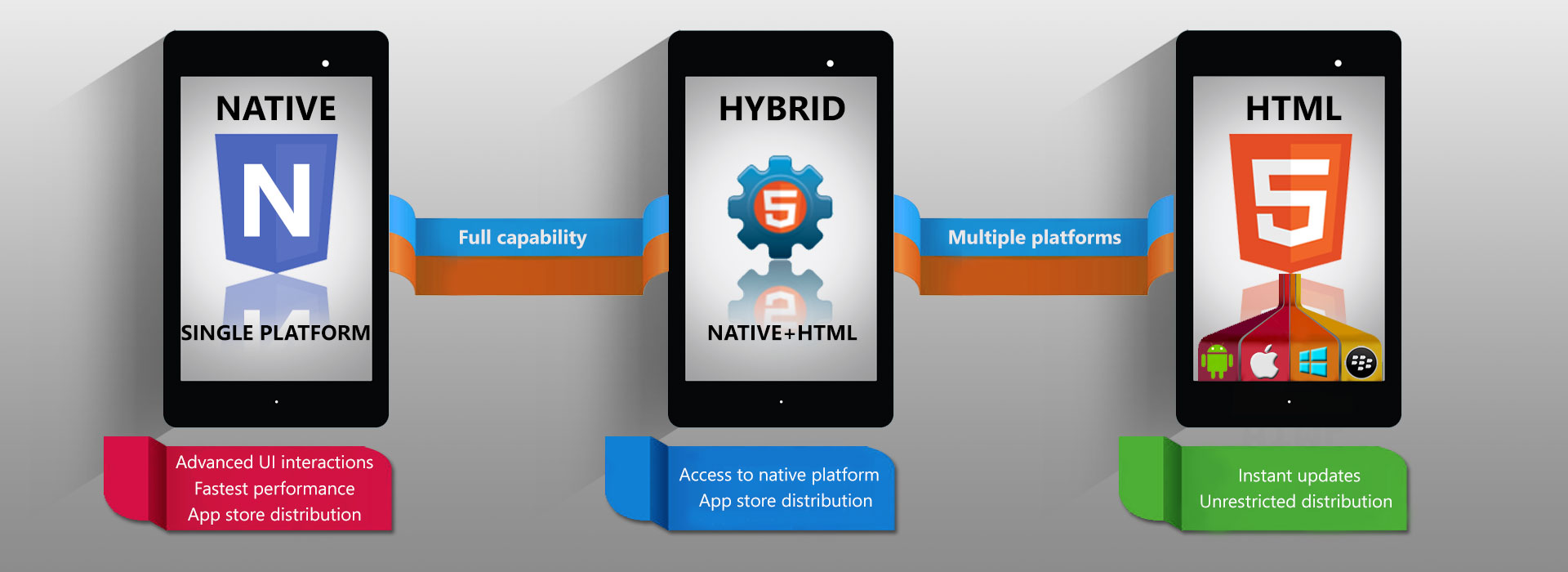
Hybrid apps: could your business be in the App store sooner than you think?
Developing Apps for smartphones and tablets can be an incredibly confusing process and a huge resource sink of both time and money. Some drawbacks include needing to;
- develop completely different sets of code for Android, iOs, and Windows,
- design different interfaces and user experiences for each
- maintain those separate apps
- re-submit them to their respective app stores every time you need to change a line of code.
In other words, it can range from being a real headache, to a complete nightmare.
Recently, open source app technology has emerged that provides a potential alternative. So called Hybrid Apps take the existing web technology we use to build websites and web applications (HTML, CSS, and JavaScript), and wraps them in a container that enables them to behave like a native app. To put it another way, you can conceivably take an online web application or website, and make it look and feel like a native app, with access to many device specific capabilities - such as the camera, GPS, push notifications, and local storage.
Basically you get the platform independency of a web app while being able to access native features such as App store presence, superior performance, a highly detailed user interface and access to internal features such as device camera, Gyroscope and lots more.
Swarnendu De
Co-founder, Innofied
While not suited to all apps, a large majority can benefit for this technology enabling them to be developed much faster and cheaper, with a single code base to maintain. Many updates to the code can also be released through the web instead of through the app store, meaning bug fixes can be released quicker, and customers kept happier.
Benefits of a Hybrid App
- Typically indistinguishable from a Native App
- One single code base - reduced development and maintenance time and costs
- Ability to customise push notifications remotely - no need to update the app
- Functionality updates can be pushed remotely - no need to update the app
- Code is Open Source and easily transferable - no licensing or lock in
- Development resource is more affordable and available - high adoption rate
- Native device functionality provided easily via App Wrapper - no need to develop common functionality.
- Future proofed against new technology/devices entering or increasing market share - easy to support Windows Phone / Ubuntu Mobile / Firefox OS / Samsung Tizen
This Hybrid App approach will not be suitable for every app. Careful evaluation of the end user, their platforms of choice, and the specific device requirements need to be considered up front. However, for many apps, particularly content-driven ones, the benefits of this approach far outweigh the potential drawbacks.